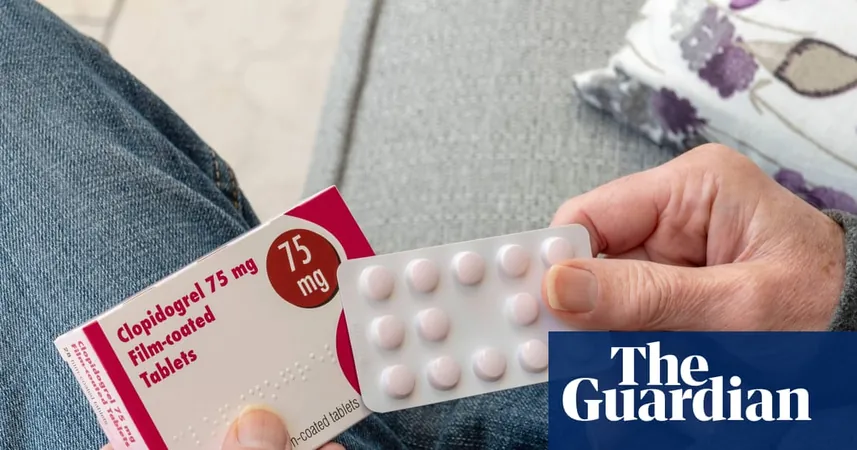
Breakthrough Study Reveals Mixed Results for Nicotinamide Riboside in Brain Health!
2025-07-29
Author: Liam
Nicotinamide Riboside: The New Hope for Cognitive Health?
In a groundbreaking 12-week double-blind trial, nicotinamide riboside (NR) has shown promise for brain health, particularly in enhancing blood flow to the hippocampus, a crucial region for memory. However, the anticipated boost in memory function didn't quite materialize, prompting researchers to call for larger studies to explore NR's full potential.
What is Nicotinamide Riboside?
Nicotinamide riboside, a derivative of vitamin B3, acts as a precursor to nicotinamide adenine dinucleotide (NAD+), a vital coenzyme involved in energy production, DNA repair, and cell health. Scientists believe that NR can replenish NAD+, potentially leading to better brain metabolism, reduced inflammation, and improved neuron survival, with hopes of slowing cognitive decline.
The Study Details: Promising but Inconclusive
Presented at the 2025 Alzheimer’s Association International Conference in Toronto, the trial involved 52 older adults with amnestic mild cognitive impairment (aMCI). Participants were randomly assigned to receive either 500 mg of NR twice daily or a placebo over the study period. The results revealed a significant increase in NAD+ levels among those taking NR, showcasing robust biochemical changes.
Yet, despite these encouraging findings, improvements in memory performance were elusive. Researchers led by Dr. Christopher Martens noted that while blood flow to the left hippocampus improved significantly among NR users, it did not translate into enhanced memory capabilities.
Encouraging Signs: Some Cognitive Improvement
Interestingly, the NR group displayed a modest increase in delayed recall memory during the trials, hinting at potential cognitive benefits. Despite this, the lack of substantial progress in overall cognitive function raises questions about the practical efficacy of NR as a treatment for cognitive decline.
Safety and Future Directions
Safety was a highlight of the trial, with no serious adverse effects reported, reinforcing NR’s promise as a potential supplement for cognitive health. However, given the lack of significant memory improvements, larger phase 3 studies are essential to determine its true effectiveness against Alzheimer’s-related cognitive issues.
Beyond NR: Other Investigations into Cognitive Enhancement
The enthusiasm around cognitive health isn’t limited to NR. Another related study led by Dr. Joshua D. Grill examined the effects of nicotinamide in early Alzheimer's patients. While this proof-of-concept trial showed some signs of slowing cognitive decline, it also emphasized the need for further comprehensive research.
As scientists continue to decode the complexities of cognitive health, NR and related compounds remain in the spotlight. The quest for effective treatments for cognitive impairment is ongoing, but each study brings us one step closer to understanding how to support brain health in aging populations.









 Brasil (PT)
Brasil (PT)
 Canada (EN)
Canada (EN)
 Chile (ES)
Chile (ES)
 Česko (CS)
Česko (CS)
 대한민국 (KO)
대한민국 (KO)
 España (ES)
España (ES)
 France (FR)
France (FR)
 Hong Kong (EN)
Hong Kong (EN)
 Italia (IT)
Italia (IT)
 日本 (JA)
日本 (JA)
 Magyarország (HU)
Magyarország (HU)
 Norge (NO)
Norge (NO)
 Polska (PL)
Polska (PL)
 Schweiz (DE)
Schweiz (DE)
 Singapore (EN)
Singapore (EN)
 Sverige (SV)
Sverige (SV)
 Suomi (FI)
Suomi (FI)
 Türkiye (TR)
Türkiye (TR)
 الإمارات العربية المتحدة (AR)
الإمارات العربية المتحدة (AR)